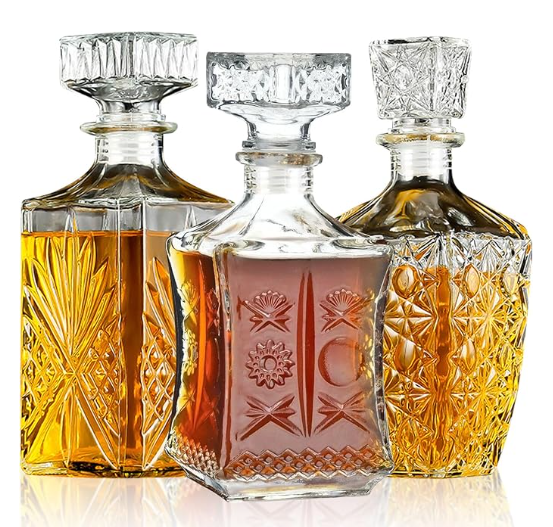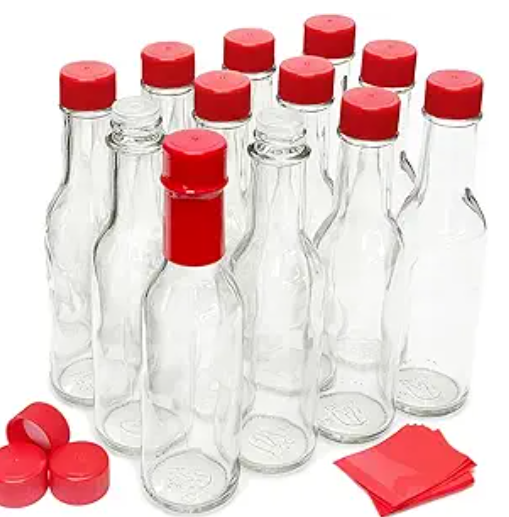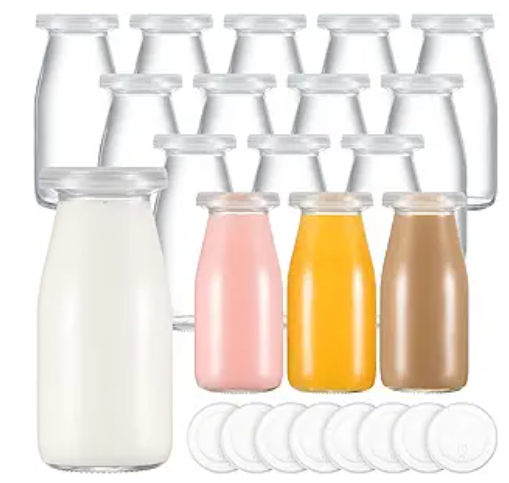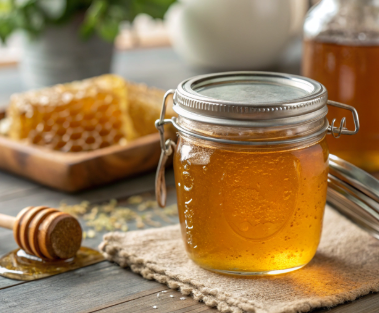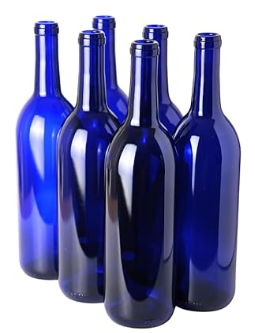Choosing the rightliquor bottlesfor new distillery startups is a multifaceted process that requires careful consideration of various factors ranging from material and design to sustainability and regulatory compliance. For startups, this choice is not merely about packaging but about crafting an identity that resonates with consumers and supports long-term brand success. Paupacking, a leading provider of premiumLiquor Bottles, offers comprehensive solutions tailored to the unique needs of emerging distilleries. This article will explore in depth the critical aspects of selecting liquor bottles, providing detailed insights and practical guidance to help startups make informed decisions.
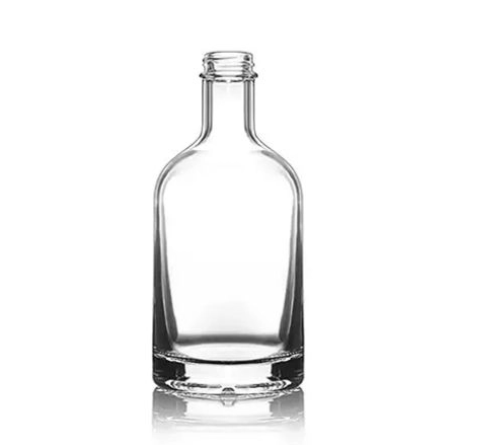

The Strategic Importance of Liquor Bottles for New Distilleries
Theliquor bottleserves as the physical embodiment of your brand. It is the first tangible point of contact between your product and your customers, influencing perceptions of quality, craftsmanship, and value. For new distilleries, where brand recognition is still nascent, the bottle design can significantly impact market entry success.
A thoughtfully chosen bottle can:
-
Enhance Brand Recognition:Distinctive bottle shapes and finishes make your product instantly recognizable on crowded shelves.
-
Protect Product Integrity:High-quality glass preserves the spirit’s aroma, flavor, and color over time.
-
Communicate Brand Values:Sustainable materials and innovative designs reflect your commitment to environmental responsibility and modern aesthetics.
-
Facilitate Distribution:Bottles that comply with industry standards simplify logistics and retail placement.
Paupacking’s expertise in manufacturing and customizingLiquor Bottlesensures that startups receive packaging solutions that align with their brand vision and operational needs.
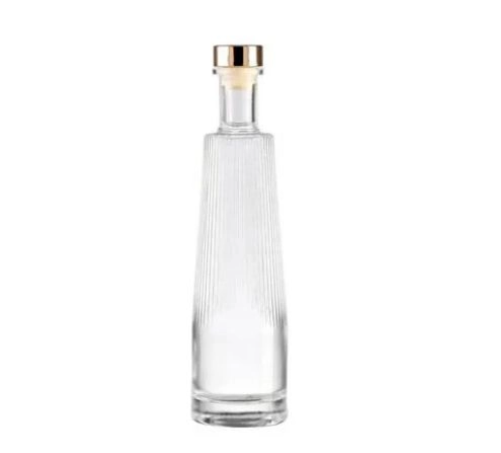

1. Bottle Material: Why Glass Remains the Gold Standard
Glass is the quintessential material for liquor bottles due to its unique combination of properties that perfectly suit the requirements of premium spirits.
Preservation of Flavor and Aroma
Glass is chemically inert, meaning it does not react with the liquid inside. This is crucial for spirits, where even minor chemical interactions can alter flavor profiles. Unlike plastic or metal containers, glass maintains the purity of your product, ensuring that consumers experience the spirit as intended.
Premium Consumer Perception
Consumers associate glass bottles with quality, tradition, and luxury. The weight, clarity, and tactile feel of glass contribute to a perception of craftsmanship and authenticity. For startups aiming to position themselves in the premium segment, glass bottles are indispensable.
Sustainability Advantages
Glass is 100% recyclable without any loss in quality or purity. Moreover, many glass manufacturers, including Paupacking, incorporate recycled glass (cullet) into their production processes, reducing energy consumption and carbon emissions. Lightweight glass bottles further reduce transportation emissions, aligning with the growing consumer demand for environmentally responsible products.
Durability and Safety
Glass bottles provide robust protection against external factors such as UV light and oxygen ingress, which can degrade spirits. They also offer excellent mechanical strength, reducing breakage during shipping and handling.
Paupacking’s portfolio ofLiquor Bottlesincludes a wide range of glass types, from clear to colored, with options for recycled content and lightweight designs, ensuring startups can find the perfect balance between aesthetics, functionality, and sustainability.
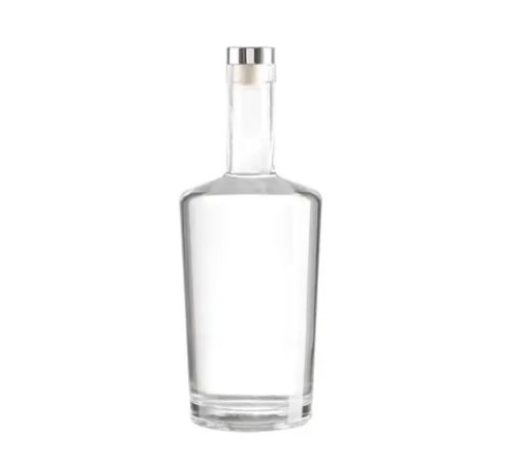

2. Bottle Design & Aesthetics: Crafting a Visual and Tactile Brand Experience
The design of your liquor bottle is a powerful storytelling tool. It conveys your brand’s heritage, personality, and values before the consumer even tastes the spirit.
Shape and Silhouette
The bottle’s shape is often the first visual cue that attracts customers. Classic shapes like the square, round, or flask-style bottles evoke tradition and reliability, while custom or avant-garde shapes signal innovation and exclusivity. For startups, a unique bottle silhouette can differentiate the brand and create a memorable shelf presence.
Embossing and Surface Texture
Embossed logos, patterns, or text add a tactile dimension that invites consumers to engage physically with the bottle. This sensory interaction enhances brand recall and can elevate perceived value. Matte, frosted, or glossy finishes also contribute to the bottle’s character and can be used strategically to align with your brand’s aesthetic.
Labeling and Printing Techniques
Labels are not just informational but a crucial design element. Options include traditional paper labels, shrink sleeves, or direct printing on glass. Minimalist labels with clean typography appeal to modern consumers, while ornate labels with foil stamping or embossing convey luxury.
Customization and Collaboration
Paupacking collaborates closely with distilleries to develop bespoke bottle designs that reflect their unique brand stories. From initial concept sketches to prototyping and final production, Paupacking ensures that eachLiquor Bottleis a perfect fit for the brand’s identity and market positioning.
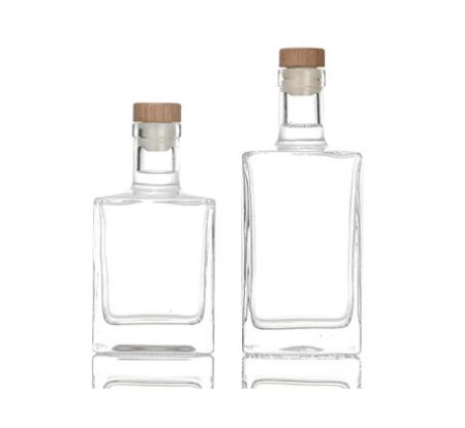

3. Sustainability Considerations: Meeting the Expectations of Modern Consumers
Sustainability is no longer optional for new distilleries; it is a market imperative. Consumers increasingly favor brands that demonstrate environmental responsibility, and packaging plays a significant role in this perception.
Lightweight Glass Bottles
Reducing the weight of glass bottles decreases raw material usage and lowers transportation emissions. Lightweight bottles maintain the premium feel while minimizing environmental impact.
Use of Recycled Glass (Cullet)
Incorporating recycled glass into bottle production reduces energy consumption and greenhouse gas emissions. Paupacking offers bottles with varying percentages of recycled content, allowing startups to align their packaging with sustainability goals without compromising quality.
Alternative Packaging Innovations
While glass remains dominant, some startups explore complementary sustainable packaging such as biodegradable labels, cork closures from renewable sources, and reusable packaging designs. These innovations further enhance the eco-friendly narrative.
Circular Economy and Consumer Engagement
Encouraging bottle returns, refills, or recycling programs can deepen customer loyalty and reduce waste. Clear communication on the bottle or packaging about recyclability and sustainability initiatives strengthens consumer trust.
Paupacking supports startups in adopting sustainable packaging solutions by providing eco-consciousLiquor Bottlesand advising on best practices for environmental stewardship.
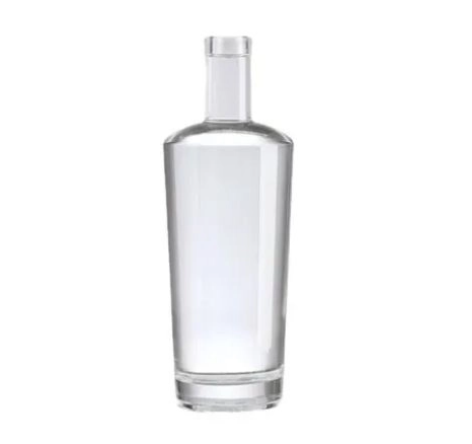

4. Compliance with Industry Standards and Regulatory Requirements
Navigating the regulatory landscape is essential to avoid costly delays and ensure smooth market entry.
Standard Bottle Sizes
Most markets require spirits to be sold in specific standard sizes such as 50 mL (miniature), 100 mL, 375 mL (half bottle), 750 mL (standard), 1 L, and 1.75 L. Adhering to these sizes facilitates retail acceptance and distribution logistics.
Labeling and Markings
Regulations often mandate specific information on labels, including alcohol content, volume, health warnings, and origin. The bottle design must accommodate these requirements without compromising aesthetics.
Quality and Safety Certifications
Bottles must meet safety standards related to glass strength, closure integrity, and contamination prevention. Paupacking ensures allLiquor Bottlescomply with international quality certifications and testing protocols.
Coordination with Suppliers and Authorities
Early collaboration with packaging suppliers and regulatory consultants helps startups design bottles that meet all legal requirements, avoiding costly redesigns or shipment rejections.
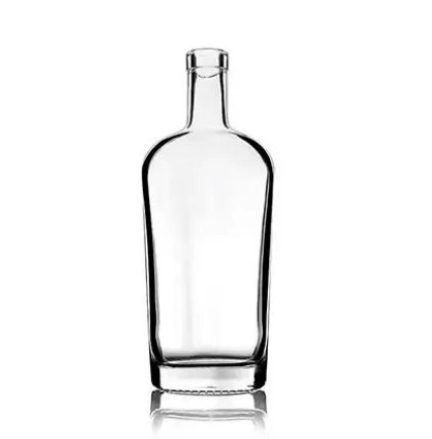

5. Packaging Integration: Ensuring Cohesion Between Bottles and Secondary Packaging
The bottle is only one component of the packaging system. Successful product presentation and protection depend on seamless integration with boxes, labels, closures, and shipping materials.
Box and Case Compatibility
Custom bottle shapes may require tailored boxes or inserts to secure the bottle during transport and on retail shelves. Proper packaging reduces breakage and enhances unboxing experiences.
Label and Closure Synergy
The bottle neck size and finish must match closures such as corks, screw caps, or synthetic stoppers. Label placement should complement the bottle shape and surface texture for maximum visual impact.
Logistics and Cost Efficiency
Optimizing bottle dimensions and packaging materials can reduce shipping volume and weight, lowering freight costs and environmental impact.
Paupacking offers end-to-end packaging solutions, including custom boxes, labels, closures, and logistics support, ensuring yourLiquor Bottlesarrive in perfect condition and look exceptional on shelves.
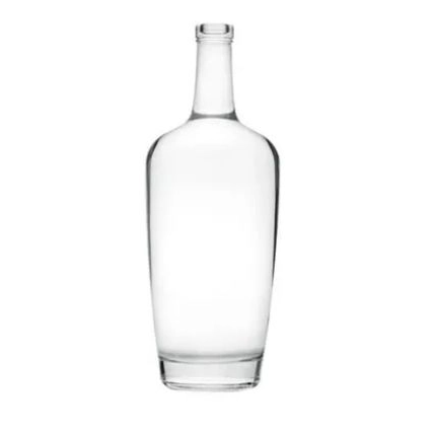

6. Minimum Order Quantities (MOQs) and Production Flexibility for Startups
Startups often face budget constraints and uncertain demand forecasts, making production flexibility vital.
Balancing MOQ and Cost
High MOQs can strain startup capital and inventory management. Paupacking offers flexible MOQs tailored to startup needs, enabling smaller initial runs without compromising quality or pricing.
Scalable Production
As your brand grows, production volumes can scale smoothly with Paupacking’s manufacturing capabilities, supporting both small batch artisanal spirits and larger commercial runs.
Rapid Prototyping and Sampling
Paupacking provides prototyping services and sample bottles, allowing startups to test designs and gather market feedback before committing to full production.
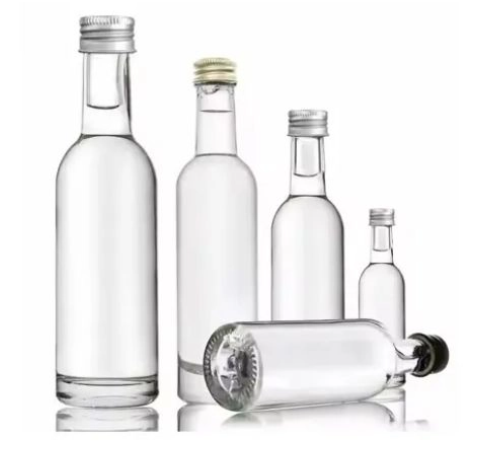

7. Supply Chain and After-Sales Support: Ensuring Smooth Operations
Reliable supply chain management and responsive after-sales service are crucial for startups navigating complex market entry challenges.
Warehousing and Inventory Management
Paupacking offers warehousing solutions that help startups manage inventory efficiently, reducing storage costs and ensuring timely order fulfillment.
Logistics and Shipping
Expert logistics coordination ensures bottles and packaging materials arrive on schedule, avoiding production delays.
Customer Service and Technical Support
Dedicated account managers provide ongoing support, troubleshooting, and advice to help startups optimize their packaging strategies.
8. Cost Considerations: Balancing Quality and Budget
While startups must be cost-conscious, compromising on bottle quality can damage brand reputation and consumer trust.
Material and Production Costs
Glass quality, bottle complexity, and decoration techniques influence costs. Paupacking helps startups find cost-effective options that maintain premium appearance and durability.
Total Cost of Ownership
Consider shipping, storage, breakage rates, and sustainability premiums when budgeting. Investing in high-quality, lightweight bottles can reduce overall costs.
Paupacking’s Comprehensive Liquor Bottle Solutions
Paupacking stands out as a trusted partner for new distillery startups by offering:
-
A vast selection of premiumLiquor Bottlesin diverse shapes, sizes, and finishes
-
Custom design and prototyping services tailored to brand identity
-
Sustainable packaging options with recycled content and lightweight glass
-
Flexible MOQs and scalable production to suit startup growth
-
Integrated packaging solutions including labeling, closures, and boxes
-
Expert regulatory compliance guidance and after-sales support
Detailed Comparison Table: Choosing the Right Liquor Bottle Features
| Feature | Description | Impact on Startup Distillery | Paupacking Solutions |
|---|---|---|---|
| Material | Glass (standard), recycled glass, alternatives | Preserves flavor, premium perception, eco-friendly | Premium glass with recycled content options |
| Design & Shape | Classic, custom molds, embossed finishes | Brand differentiation, shelf appeal | Custom design and embossing services |
| Weight | Standard vs. lightweight bottles | Reduces shipping cost and carbon footprint | Lightweight glass bottles available |
| Size Compliance | Government-approved sizes (e.g., 750 mL) | Simplifies distribution and retail shelving | Bottles in all standard sizes |
| Labeling & Decoration | Labels, direct print, embossing | Enhances brand identity and customer engagement | Professional decorating and labeling services |
| Sustainability | Recycled content, recyclability | Appeals to eco-conscious consumers | Eco-friendly manufacturing and materials |
| Packaging Integration | Fit with boxes and shipping cases | Protects product, reduces damage and cost | Custom packaging solutions tailored to bottles |
| MOQ & Flexibility | Minimum order quantities | Startup-friendly production volumes | Flexible MOQs for startups |
| Supply Chain Support | Warehousing, logistics, after-sales | Smooth operations and timely delivery | Comprehensive logistics and customer support |
| Cost Efficiency | Balancing quality with budget | Critical for startup viability | Competitive pricing with premium quality |
Conclusion: Building a Strong Foundation with Paupacking’s Liquor Bottles
For new distillery startups, selecting the rightLiquor Bottleis a strategic investment in brand identity, product quality, and market success. Paupacking’s expertise, extensive product range, and commitment to sustainability provide startups with the tools to create compelling packaging that resonates with consumers and supports scalable growth.
By partnering with Paupacking, startups gain access to innovative designs, flexible production, and comprehensive support that simplify the complexities of packaging. This empowers distilleries to focus on crafting exceptional spirits while confidently presenting their products to the world.
Explore Paupacking’s premiumLiquor Bottlestoday and take the first step toward building a distinguished spirits brand that stands the test of time.




